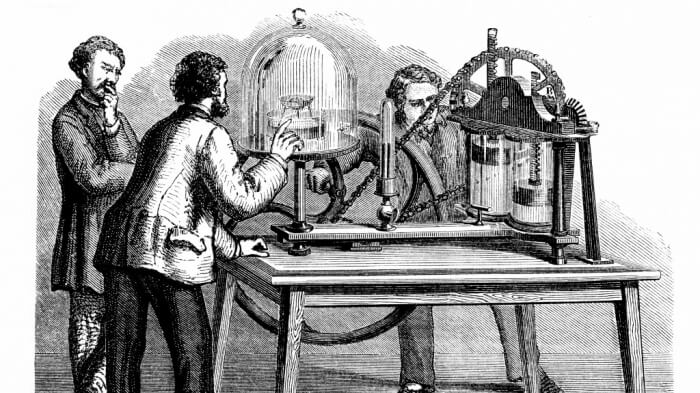It is World IP Day on 26th April but what is IP, why is it so valuable and what can you do to protect your business from intellectual property theft?
Protecting Intellectual Property
It is World IP Day on 26th April but what is IP, why is it so valuable and what can you do to protect your business from intellectual property theft?

Intellectual Property (IP) can be your most valuable asset, whether it’s your company name, logo, a piece of software or a product you have designed. Your IP makes your business recognizable and potentially very valuable so it’s important to protect it from competitors.
A company is never too embryonic to protect their IP and it is advisable to tackle this in the early stages, otherwise you risk losing your IP, enduring a legal battle and potentially having to re-brand. Its also essential if you are seeking investment as often this becomes the investors only collateral so having this protected sets you ahead of your competition.
How Can I Protect my IP?
There are several measures you can take to protect yourself against IP theft which we have outlined in some detail below:
Trademarks
A Trademark includes your logo, company names or slogans for example. Holding the web domain or company name, is not enough if these trademarks are not registered someone else could register them and force you to re-brand or someone could already hold this mark and you could be infringing its rights.
Check and then register all important Trademarks so that you can deter others from using your brand. If anyone does start using your branding without your permission, trademark litigation will give you the right to take legal action against them. You can also recover any losses suffered.
It is fair to say you always have protection from ‘passing off’ in that someone cannot mirror your name or logo or branding and compete with you, even if you have not registered these marks, if they are convincing clients they are working with you or are you. However, you would need to file an objection and/or take legal action to retain your rights which can become costly.
A Patent
If you have invented something such as an app or a product you can potentially register this as a protected patent . It is a costly excise , but if you wish to do this you should do so as soon as possible. Whilst awaiting registration we also advise you to post your design to yourself or a trusted party in a sealed envelope that is dated. This is then evidence of what you created and when.

If you create something marvellous, be sure to protect it
Third Party Assistance
If you’ve hired a person or company to create your IP and/or products, it is vital you have a detailed and protective agreement in place. This should assign full ownership rights to you upon payment or completion, as these do not automatically transfer to you.
It should also cover what that third party should do upon completion such as destroying any workings, maintain confidentiality and importantly being unable to use the IP themselves unless permitted to do so.
If your own employees create the IP during their employment, this will automatically be your property, but you should ensure these provisions are outlined in their employment contracts for added protection. It also helps to cover IP created in their spare time as they may use your resources or knowledge.
Having a non-compete clause also means if they terminate their employment with you they cannot take this knowledge and create new IP which they can themselves sell on. If you are unsure about whether you have employees or self-employed contractors, you should take legal advice.
Non-Disclosure / Confidentiality Agreements
If you are going to disclose any details about your business, IP or development of IP including staff, sub-contractors, investors and other third parties, you should have well drafted non-disclosure agreements in place.
It is key that a legally binding agreement sets out the terms on which these third parties can discuss or disclosure your IP to others, it keeps your ideas confidential during the development stages and prevents them using this information for their own gain.
If you are going to register a patent you can only do so if , a third party has seen this, if you have an NDA. Disclosure to a third party without an NDA can frustrate your application.
License Arrangements
You can of course permit someone else to use your IP and pay you a commission for this right. This is often the case for franchise arrangements. A license should be executed between you to protect your position as the IP owner.
It should set out the exact terms the user can use the IP, on what basis you can withdraw this right and importantly to protect your full ownership.

If someone steals your idea, then act fast
Infringement
If your IP is used without your permission or someone tries to copy your branding, there are clear legal steps you can take. Firstly, you can seek to resolve the issue amicably or take immediate action such as an injunction to cease use.
You can issue a claim to seek damages for your losses and the immediate return or destruction of your IP or as is the usually the case, action of all these options.
Monitoring
If IP is a valuable part of your business we suggest you engage the services of a monitoring service. They check frequently to make sure no one seeks to use, infringe or register your IP. They notify you immediately of any concerns and give you notice to action immediately.
UK or abroad
You can register your trademark here in the UK and if this is approved you then so have the option of registering this in territories outside of the UK if you plan to expand your business. You can do a European Trademark, USA or each individual country, but you should check this will not attract any objections first. If you intend to trade in Europe now is the time to consider a European Mark as with Brexit looming this facility may change.
Summary
In summary, these are the main things to consider when you have Intellectual Property:
· Register your IP
· Protect your designs through tight agreements with all parties that are going to see this
· Ensure you document ownership and any permitted rights assigned to others
· Monitor your IP and its use
· Act if anyone seeks to use this without permission
Karen Holden is an award-winning solicitor and founder of A City Law Firm.
Thanks for signing up to Minutehack alerts.
Brilliant editorials heading your way soon.
Okay, Thanks!


